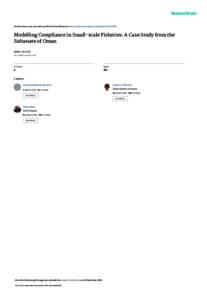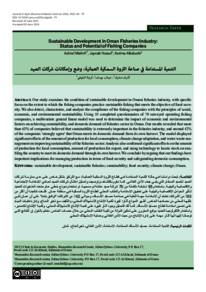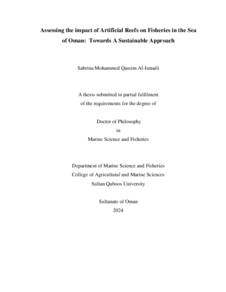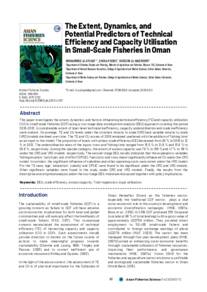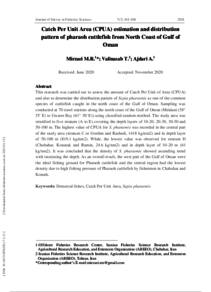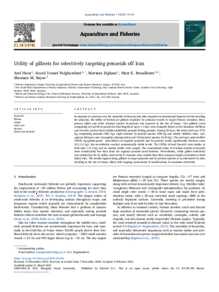Document
Modelling compliance in small scale fisheries : a case study from the Sultanate of Oman.
Identifier
DOI: 10.33997/j.afs.2020.33.2.005
Source
Asian Fisheries Science. v. 33, 2, p. 28-144
Contributors
Al-Masroori, Hussein., Author
Bose, Shekar., Author
Country
India
Publisher
Asian Fisheries Society.
Gregorian
2020-01-01
Language
English
Subject
English abstract
Despite extensive research in fisheries compliance, the artisanal fisheries sector has received little attention. AA total of 397 artisanal fishers Awere interviewed using face-to-face questionnaires and Astratified random sampling in an attempt to understand the social and economic factors impacting the compliance level. Two types of logit economic models (basic Adeterrence and Aextended Aeconomic) were used to evaluate violation decisions made by Aartisanal fishers. In general, the extended economic model generated better results than the basic deterrence model using primary probabilities. Demographic factors, legitimacy variables and biological factors (e.g. catch per unit of effort) were found to play key roles in violation decisions, unlike moral norms which had no impact. The study provides empirical support for the theory that potential profits, ethical standards, legitimacy, and social impact are the key variables for encouraging compliance in the artisanal fisheries sector. In the light of current operational challenges in terms of human and institutional Acapacity and inadequate financial and logistical resources, a heterogeneous approach to the fisheries management program was recommendedA. This research can be carried out by any fisheries agency to help inform their management decisions with unbiased data on the strategic choices made by fishers with regard to regulation.
ISSN
0116-6514
Category
Journal articles

